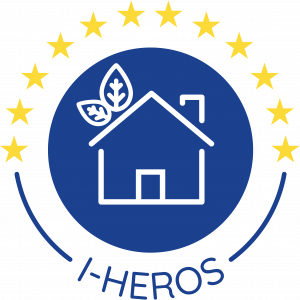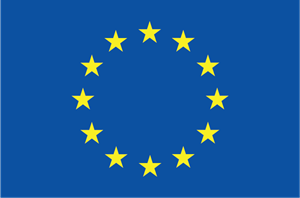
Current situation
A total of 8 out of 14 energy and climate protection agencies that participated in the online survey are currently involved in a one-stop-shop. The areas where the one-stop-shops are active include cities, sometimes with surrounding areas, or entire districts with mainly dense settlement structures and more than 80,000 inhabitants.
In addition to the energy and climate protection agencies, the one-stop-shops primarily involve public authorities, chambers of crafts and building contractors. Furthermore, the one-stop-shops are involved in a network with consumer centres, banks, funding institutions and utility companies.
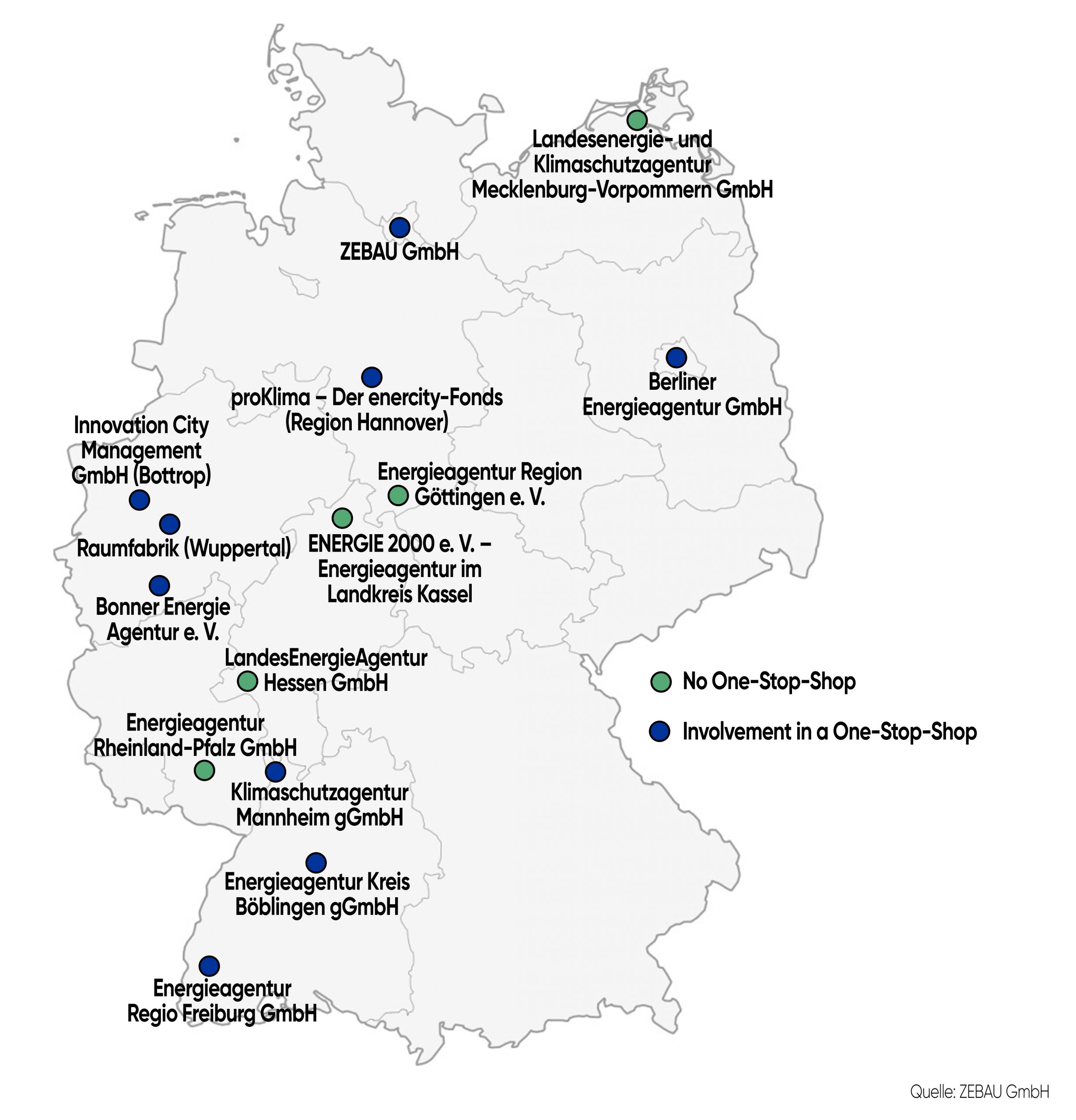
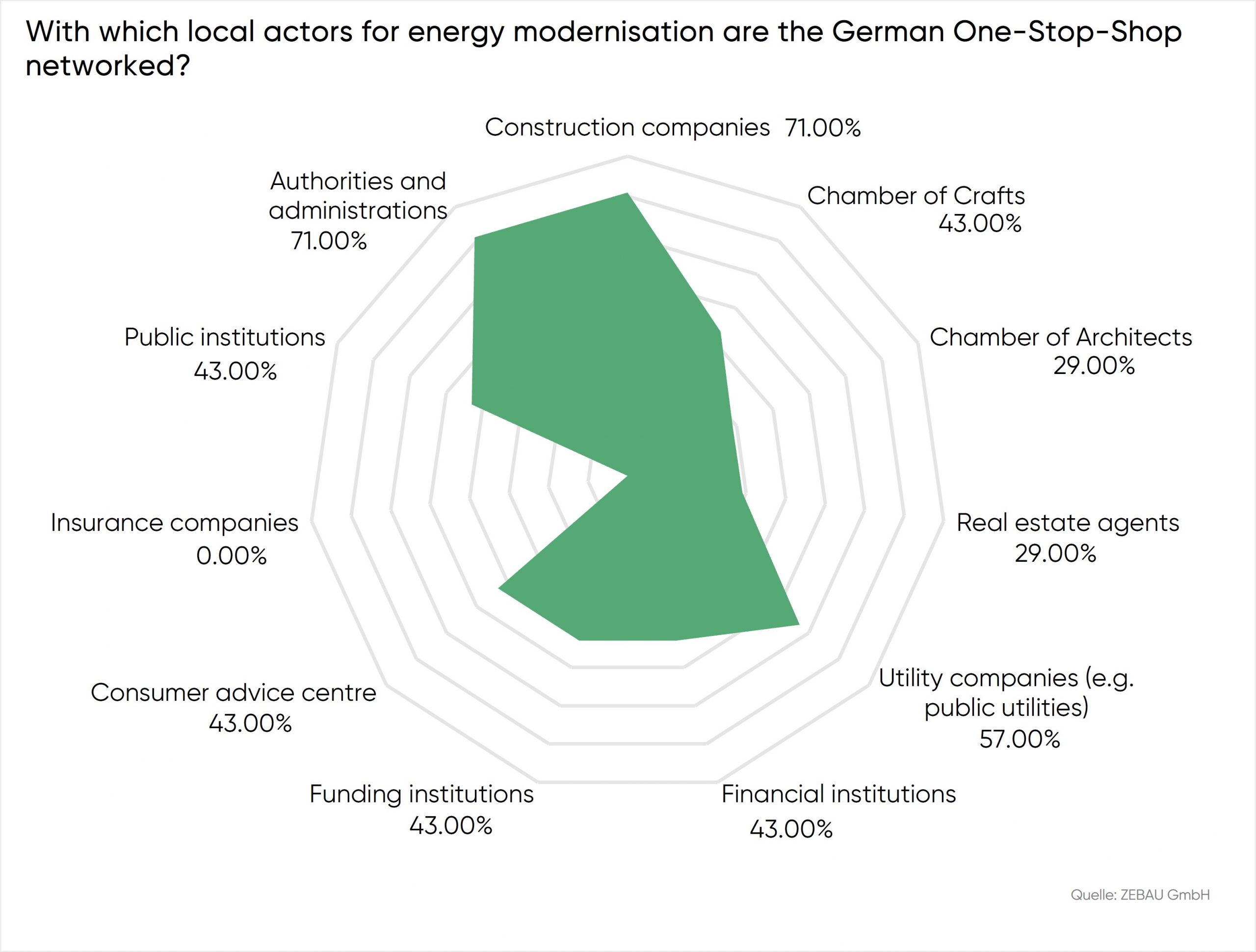
The one-stop-shops primarily offer their advice and information services to private owners of residential buildings, single-family homeowners and homeowners’ associations. Commercial and business-oriented target groups are addressed much less by the one-stop-shops. More than 80 percent of the participating one-stop-shops do not proactively generate demand for specific target groups, for example, through a market analysis of the existing building stock and direct approach of the owners.

The services most often offered by the one-stop-shops include initial advice in the » guidance phase », the provision of general information on optimal renovation work and a list of building contractors, as well as the recommendation of relevant energy-saving measures, technologies and materials. In addition, all participating one-stop-shops offer general advice on existing financing options, such as funding programmes or subsidies. The informations are provided via telephone, online consultations, events and as advice at physical advice centres. More than half of the participating one-stop-shops offer all counselling and information services without charge.
Services on behalf of homeowners, such as the coordination of contractors and renovation work or the preparation of a tailor-made financing plan including the necessary documentation, are not covered by the German one-stop-shops so far. The development of a « roadmap for energy-efficient refurbishment » and the provision of products which have been negotiated with partner technology suppliers and service providers are also currently not part of the range of services offered by the one-stop-shops in Germany.
The target values of consultations that have to be fulfilled each year vary between the one-stop-shops. The participating one-stop-shops carry out between 500 and more than 5,000 energy counselling sessions per year. The agencies also reported that they achieve the set target values, and in some cases even exceed them.
In most of the one-stop-shops, an evaluation and monitoring system is being developed or does not exist. The first approaches to measure the impact of the one-stop-shops are to contact those who seek advice about one to two years after the initial consultation or to evaluate the municipal funding programme.
Evolution of the one-stop-shops in Germany
More than half of the participating energy and climate protection agencies that are involved in a one-stop-shop are thinking about further developing their offers. In this context, there is a special interest in the development of group consultations, explanation videos and digital information to reduce the workload of the energy advisors. But also, an improved cooperation with local crafts companies as well as the expansion of monitoring and the revision of the financing model of the one-stop-shop are to be focussed on in the context of further development. In the future, two energy and climate protection agencies that have not been involved in any one-stop-shop so far want to establish a one-stop-shop in their region.
The greatest challenges for the new and further development are seen in the lack of sufficient numbers of qualified professionals, the financing and the commitment of the professionals to the one-stop-shop and the ongoing cooperation with network partners. Possible solutions for overcoming these challenges exist for the energy and climate protection agencies, for example, through a political focus on strengthening local crafts, support in recruiting professionals and additional education offers for energy consultants. In addition, increased cooperation with architects and engineers and the establishment of a stable network are recommended.
Learning from each other across borders: insights from Toulouse for Germany
Overall, the survey showed that the German one-stop-shops can be assigned to Level 1 « Facilitation Model » with partial approaches to Level 2 « Coordination Model » of the one-stop-shop-model of the innovate project due to the services they offer.1 At the same time, there is a high willingness among the agencies to further develop the existing one-stop-shops and to create more comprehensive offers. This is where the energy and climate protection agencies in Germany benefit from the EU project I-HEROS. The one-stop-shop « Toulouse Métropole rénov‘ », which was developed as part of I-HEROS, offers services and solutions that can serve as orientation for the further development of the German one-stop-shops and support in overcoming some of the challenges.
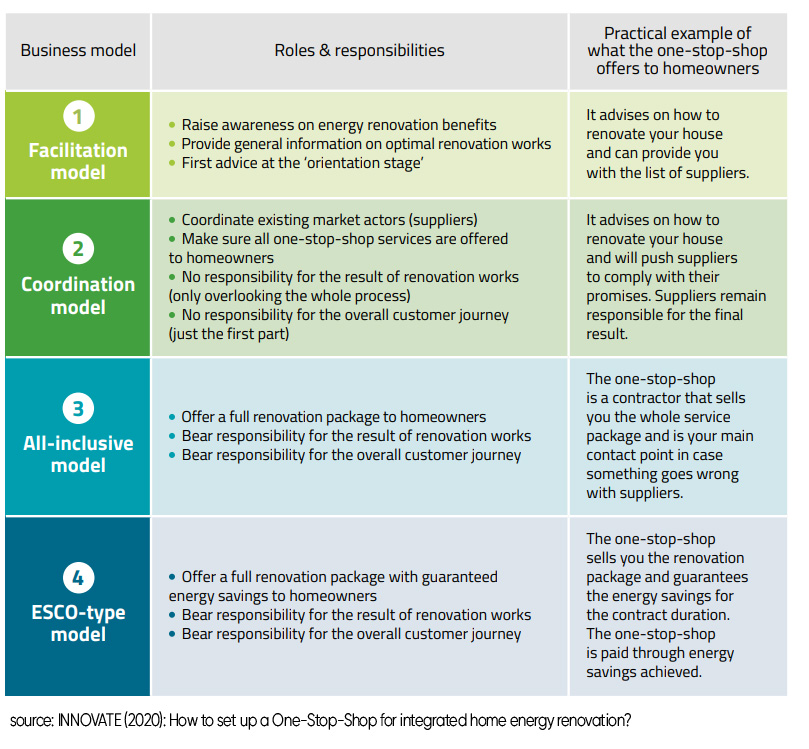
For example, in the development of the French one-stop-shop, an analysis of the modernisation potential in the Toulouse metropolitan region was carried out in order to offer information campaigns and collective consultations in neighbourhoods with increased modernisation potential. Based on the analysis, the homeowners in the neighbourhoods with increased modernisation potential are contacted directly to proactively generate demand and promote modernisation activities in the region. In addition, information events are held directly in the neighbourhoods and the employees of the local administrations are trained in workshops to draw attention to the modernisation potential. Moreover, with the help of a « charter of commitment », qualified local construction companies are committing to cooperate with the one-stop-shop. These companies are listed in a digital directory that helps people looking for renovation specialists by presenting qualified construction companies with their realised projects. Within I-Heros, a monitoring system for the one-stop-shop is being developed to evaluate, the number of completed services, the customer satisfaction and the achieved energy savings.
Further information on the Toulouse one-stop shop « Toulouse Métropole rénov‘ » can be found in the ZEBAU magazine
The complete results of the online survey « One-Stop-Shops in Germany » are available here.
